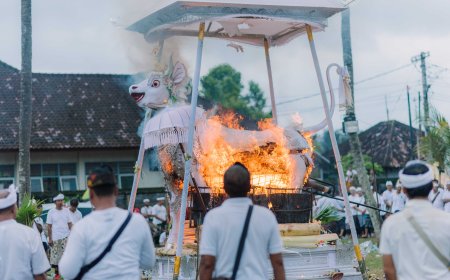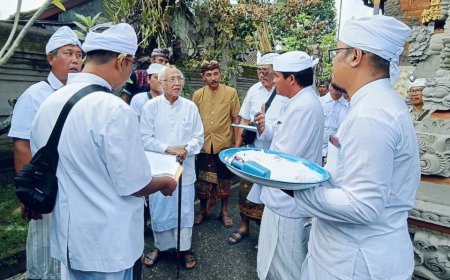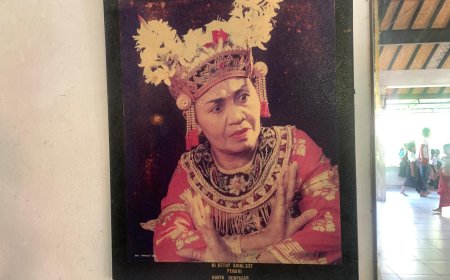Rsi Gana: Dewa Gana Manifested as Sanghyang Rsi Gana to Bless the Yadnya Ceremony
Dewa Gana, a prominent figure in Hindu mythology, is a manifestation of strength and wisdom, known for his unique form of having an elephant's head and a human body. He serves to maintain the balance between the human and divine realms, as well as being a symbol of courage and protection for those who pray. Known by various names such as Ganesha and Gana Pati, each name reflects different aspects of his abilities, including his form as Sanghyang Rsi Gana.
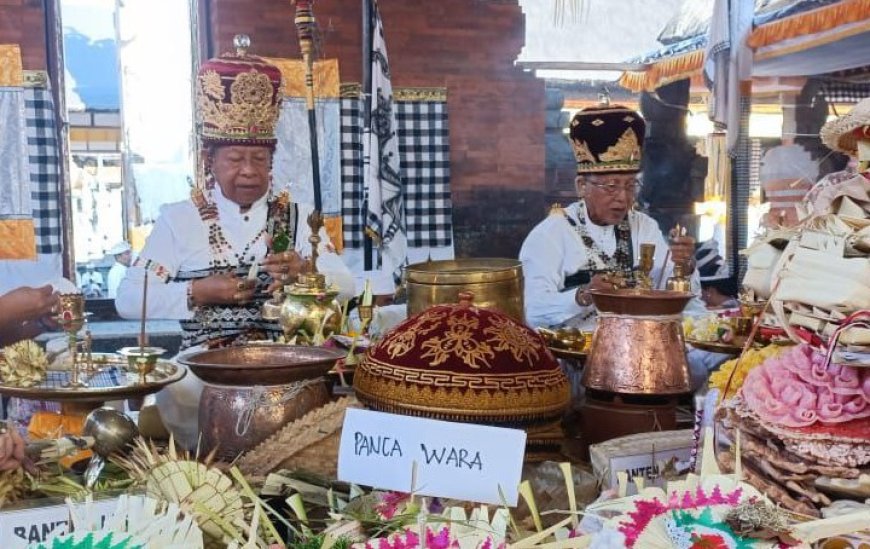
Dewa Gana, a prominent figure in Hindu mythology, represents the captivating powers of strength and wisdom. With his unique form—an elephant's head and a human body—Gana symbolizes the combination of physical strength and intelligence. In legends, he is recognized as the guardian of the gods, maintaining balance between the human and divine realms. Dewa Gana is often seen as a symbol of courage in facing life's challenges and as a protector for those who pray and seek blessings.
Dewa Gana is known by various names that reflect his roles in mythology. In his youth, he was called Ganesha, representing knowledge and wisdom. When leading armies, he was referred to as Gana Pati, with his battlefields often known as Ranang Gana. As he created slokas and literary knowledge, he earned the name Dewa Gana. Additionally, upon receiving blessings from Lord Vishnu, he was known as Dewa Gana Wisnu, and when blessed by Lord Shiva, he became Dewa Gana Siwa, among many other titles. Each of these names illustrates different aspects of his power and expertise.
One remarkable aspect of Dewa Gana is Sanghyang Rsi Gana, who serves as a protector and bestower of blessings during every Yadnya ceremony. In his Rsi form, Sanghyang Rsi Gana is present to dispel any obstacles or hindrances, whether from negative forces or destructive non-physical beings. This role is connected to the mythology in which Dewa Gana was granted the power by Lord Shiva to eliminate all negative influences caused by demons.
Sanghyang Rsi Gana, with all his grandeur, embodies the local wisdom unique to Hindu Bali, an island renowned for its remarkable harmony. Here, Hinduism has successfully translated Vedic teachings into the practice of Yadnya rituals, making it a living expression of the community's breath of life. Each Yadnya ritual in Bali reflects a profound understanding of the cosmos and the relationship between humans and the divine, with Sanghyang Rsi Gana acting as a guide and protector during these ceremonies.
To manifest Dewa Gana as Sanghyang Rsi Gana, the Upacara Rsi Gana is performed. This ceremony is exclusive to Hindu rituals in Bali, meaning that the ongoing Yadnya ceremony utilizes Sanghyang Rsi Gana as its Upasaksi. In the context of Karya Agung, the Upacara Rsi Gana serves as an initial blessing for the Yadnya ceremony, typically involving a smaller purification ritual before the larger event with a grand purification.
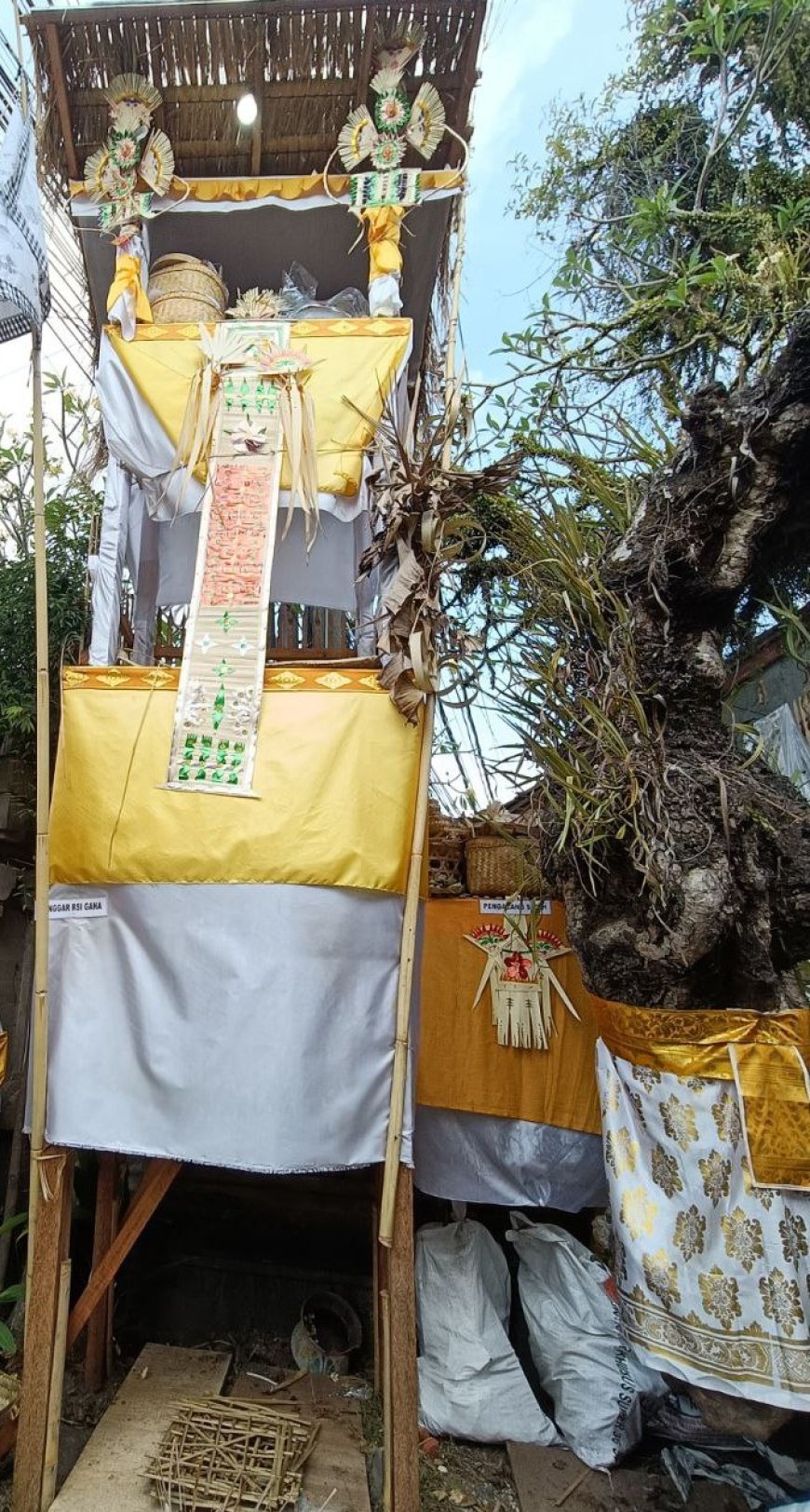
Sanggar Rsi Gana at Karya Agung di Pura Desa Puseh Mengwitani
During the Karya Agung Ngenteg Linggih, Ngusabha Desa, and Mapayahu Nini held at Pura Desa Puseh Mengwitani, the Upacara Rsi Gana took place on September 19, 2024, coinciding with the Melaspas and Mendem Pedagingan ceremonies. The ceremony was led by Ida Pedanda Putra Pasuruan from Griya Gede Taman Lukluk, who was also the Yajamana Karya, alongside Ida Pedanda Gede Watulumbang from Griya Watulumbang Sibang Gede.
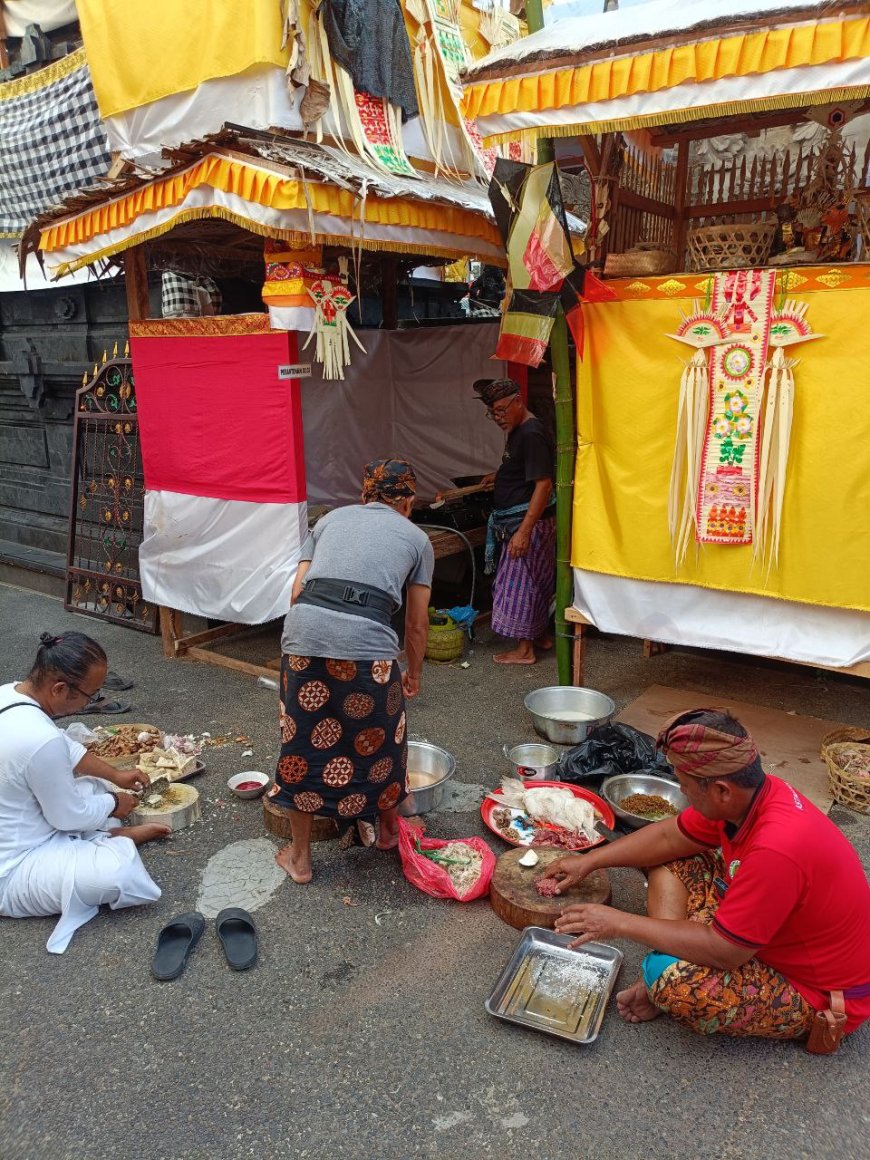
The Sacred Kitchen is specially designed for preparing the offerings for the Rsi Yadnya ceremony.
The sacred atmosphere of the Upacara Rsi Gana is clearly reflected in every stage of the preparation for the ceremonial offerings. Every tool used must be new, symbolizing the purity and honor of the ritual. The preparations take place at a sacred site, where a special kitchen is set up for this purpose. All prepared materials must be fully utilized, emphasizing the importance of every element in the ritual. Additionally, each offering is arranged according to the directions of the wind, symbolizing different body parts (such as the heart, lungs, and others), ensuring a harmonious balance. The offerings must be made fresh, typically cooked on the same day as the ceremony, and often include duck as a symbol of purity.


















































